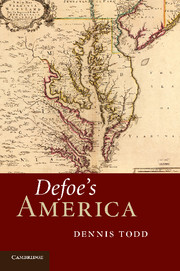Book contents
2 - Mastering the savage: conversion in Robinson Crusoe
Published online by Cambridge University Press: 02 December 2010
Summary
Robinson Crusoe is a colonial novel and a religious novel. It simultaneously traces the spiritual regeneration of its protagonist and reflects on England's colonial venture in the New World. In important respects, these two stories are parallel. Both are plotted out in terms of mastery – Crusoe's mastery of the wilderness of his island and his mastery of his own sinful nature, that wilderness within. In both of these stories, cannibals play a central role. In the story of Crusoe's religious awakening, they are the savage Other against whom his spiritual and psychological growth is measured. In the story of England's colonial project, they embody the wilderness England's settlers had to come to terms with. In both stories, they are disturbing presences.
Crusoe is “perfectly confounded and amaz'd” when he stumbles on evidence of cannibals on his island, “seeing the Shore spread with Skulls, Hands, Feet, and other Bones of humane Bodies” (RC, p. 178). He struggles to quiet his confusion and fear by fortifying his “Castle” and by daily climbing the hill above it to keep a constant watch (RC, p. 179). He indulges in fantasies of “a bloody putting twenty or thirty of them to the Sword” (RC, pp. 181–182). Gradually, he calms himself enough to entertain some tentative speculations about the cannibals.
- Type
- Chapter
- Information
- Defoe's America , pp. 32 - 75Publisher: Cambridge University PressPrint publication year: 2010



